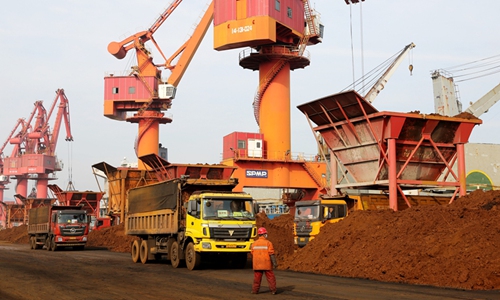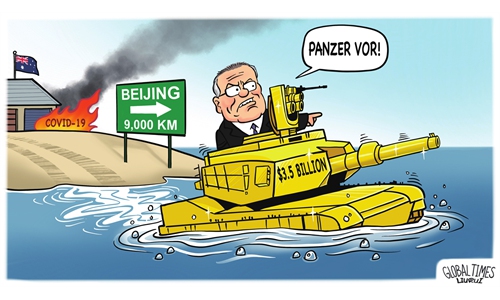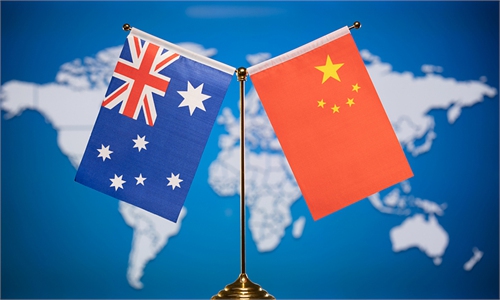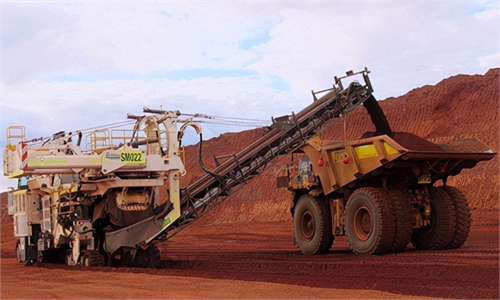China’s infrastructure-driven steel price rise to lift imports of Australian ore in Jan
Strong infrastructure investment to lift demand for steel, imported iron ore

Iron ore Photo:VCG
China's iron ore imports may reach 90 million tons in January, which would represent a 5 percent month-on-month increase, driven by stronger infrastructure investment, and Australia is likely to account for 60 percent of those imports, becoming the biggest beneficiary, industry insiders said on Sunday.
Domestic steel prices have gradually rebounded over the past two months, with the main contract for rebar futures up nearly 10 percent, driven by plans to increase infrastructure spending. That reflects rising steel demand in China and signals more iron ore imports.
While commodity prices generally reached low ebb at the end of the year, the market for iron ore was an outlier - prices bottomed out and started a slow rebound starting in November.
As of Thursday, the Platts iron ore price index was $128 per ton, an increase of $40.8 per ton or 46.8 percent from the low point in November 2021.
Industry analysts said that rising iron ore prices reflect an expected pick-up in China's infrastructure investment this year, especially as local government bond funds have become an important source of financing for infrastructure investment.
Recently, the Ministry of Finance announced a quota of 1.46 trillion yuan ($229.8 billion) for new special-purpose debts in 2022 in advance.
The early release of the new quota will allow "moderately advanced infrastructure investment" to obtain financial support, which will effectively play the role of infrastructure in underpinning the economy, according to the Beijing Lange Steel Information Research Center.
"The resumption of production in steel mills has driven the release of demand for raw materials… since December 2021... with the completion of production reduction work in many places, the trend of resumption of production in steel mills has emerged," Wang Guoqing, research director at the Beijing Lange Steel Information Research Center, told the Global Times on Sunday.
Other overlapping factors, including heavy rains in Brazil affecting Vale, one of the world's biggest iron ore miners, and the potential pandemic fallout in Western Australia on iron ore production, may also support iron ore prices, Wang said.
The steel price is about 4,600 yuan per ton on Sunday, and it may even hit a record high for winter storage, according to media reports.
While rising demand is expected to optimize iron ore imports in January, elevated prices won't last long, since the shipping and arrival volumes of imported iron ore remain fairly high, Wang said.
Expected production suspension amid the upcoming Winter Olympic Games will also curb demand. According to the Beijing Lange Steel Information Research Center, the implementation of staggered production measures to limit output by 30 percent in Beijing-Tianjin-Hebei and surrounding areas will be significantly strengthened.



